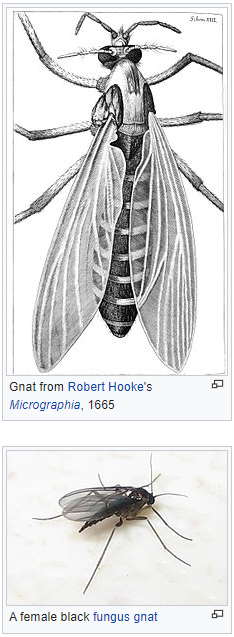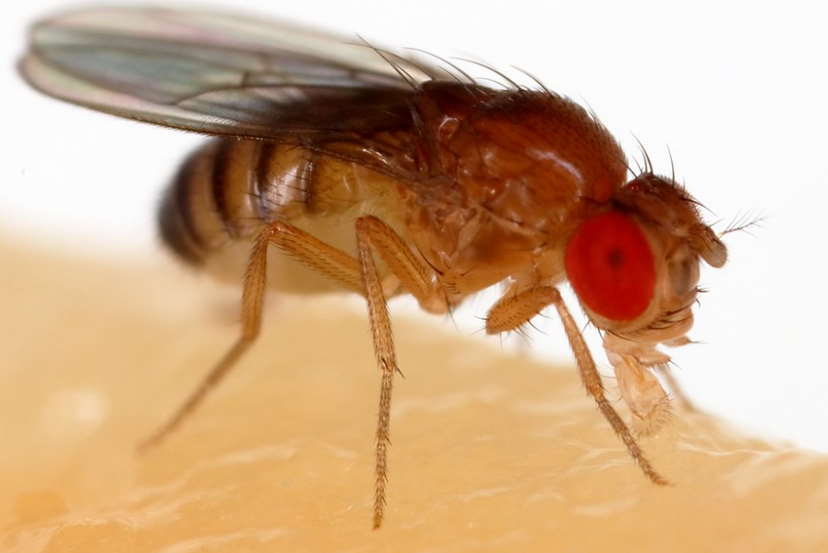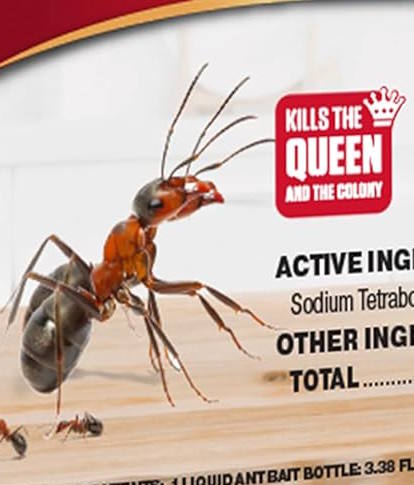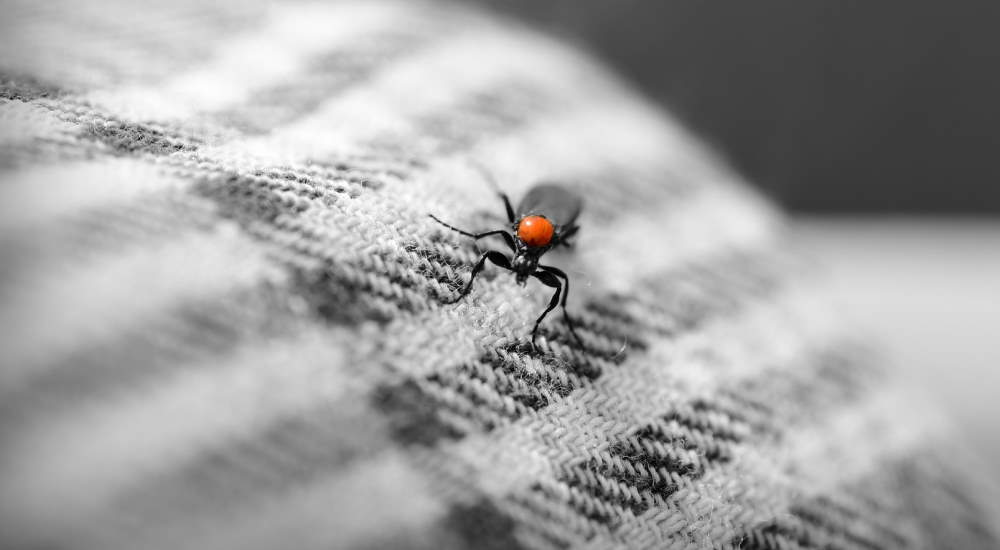If you want to achieve maximum hygiene in your home, the kitchen area should be your primary focus. It’s where you store, prepare and cook food products. If your kitchen is free of pests and dirt, the hygiene and safety of your foods are assured. Unfortunately, clusters of insects are usually found where food products are stored.
Tiny black bugs may hide under dishwashers and refrigerators. As an example, poorly stored flour is usually where insects lay their eggs.
What Are Tiny Black Bugs?
There are a number of insects commonly found in your kitchen. These bugs include:
Gnats in the kitchen countertop
Gnats in the kitchen countertop can be a major nuisance. They are small flies that congregate around food and damp areas, making them a common sight in kitchens. Fortunately, there are easy ways to get rid of them.

Gnats are attracted to food that is left out in the open, and damp areas like sinks or countertops. Once they have found a suitable food source, they lay their eggs in the area. The eggs then hatch, and the larvae feed on organic matter from the food, causing further infestation.
The best way to get rid of gnats on the kitchen countertop is to keep it clean and dry. Make sure to discard any food that has been left out for too long and make sure to keep the area around the sink and countertop free from moisture. Also, be sure to empty the sink after each use, as any standing water can attract gnats.
If gnats persist, there are a few options to get rid of them. One is to use a chemical insecticide, such as a pyrethrin aerosol. This should be used in well-ventilated areas, away from food. Another option is to use non-toxic, natural insecticides, such as neem oil or diatomaceous earth. These are effective but should be used with caution.
In addition to chemical and natural insecticides, there are a few other methods to help reduce the number of gnats on the kitchen countertop. These include using a vacuum cleaner to suck up any eggs or larvae, and using sticky traps to catch any adult gnats.
By following these steps, it is possible to get rid of gnats on the kitchen countertop. Keeping the area clean and dry and using chemical or natural insecticides can help reduce their numbers and prevent them from coming back.
Weevils
Weevils hitch a ride in your groceries and lay their eggs in the grains. Because weevils are small, you may not notice them until enough of them hatch and infest your pantry. The best remedy for weevil infestation is to purge them directly. Check your unsealed dry food, including pasta, rice, oats, cornmeal, and flour. A few weevils may lie undetected inside unsealed boxes, only to re-emerge later when they multiply. After removing all the contaminated foods, you should also clean all the shelves. Instead of using household insecticide, make your own cleaning products, such as vegetable oil or garlic spray. When restocking your food products, be sure to get them from trusted retailers.
Carpet beetles
Adult carpet beetles won’t harm you, but the same isn’t true for their larvae. They may burrow tiny holes in books, clothing, upholstery, curtains, and rugs. Larvae of carpet beetles may spread into your kitchen, contaminating packaged dry foods. Remove cobwebs and dust bunnies that usually shelter adult carpet beetles. Treat your kitchen with diatomaceous earth and vacuum it to kill any troublesome larvae.
Centipedes
Centipedes are beneficial because they feast on roaches, moths, and termites; but most homeowners refuse to co-exist with these many-legged insects. Check windows, doors, and baseboards. If you find some centipedes, remove them manually. Spray the area with safe homemade insecticides made of vegetable oil, pepper, or garlic. Because centipedes love moist areas, you may put a dehumidifier in your kitchen.
Fruit flies
Fruit flies multiply incredibly quickly because their eggs hatch just 24 hours after being laid. If you see a couple of fruit flies buzzing around, you need to act quickly. Wash sweet, soft fruits to remove any egg, larvae, and contaminants. Put all of them in the refrigerator to cut flies off their food supply. Wipe down the counters and cutting boards after you use them to cut fresh fruits. Cover your garbage bin and empty it often. If you spot some fruit flies, make a safe homemade trap with a tumbler, filled with apple cider vinegar, dishwashing liquid, and warm water. When fruit flies go into the tumbler, it’s difficult for them to fly out.
Fruit flies are one of the most common pests in households, and the kitchen countertop is one of their favorite places to hang out. While these tiny insects may seem harmless, they can be a huge nuisance, and they can even contaminate food and spread disease. Fortunately, there are a few simple steps you can take to get rid of fruit flies and keep them from returning.

Source Wikipedia: Flies belonging to the family Tephritidae are also called “fruit flies“. This can cause confusion, especially in the Mediterranean, Australia, and South Africa, where the Mediterranean fruit fly Ceratitis capitata is an economic pest.
The first step is to determine where the fruit flies are coming from. Fruit flies are attracted to ripe or rotting fruit and vegetables, so check around your kitchen for any product that’s past its prime. If you find any, discard it immediately. You should also check for any leaking pipes or drains, as these can be a source of fruit flies as well.
Once you’ve identified the source of the problem, you can take steps to eliminate it. Start by cleaning your countertops and other surfaces with a solution of vinegar and water. This will help to remove any food particles that might be attracting the fruit flies. It would help if you also tried to keep your kitchen as dry as possible. Fruit flies love damp, humid environments, so put a dehumidifier in your kitchen to keep the air dry.
Finally, you can use traps to capture the fruit flies. There are several different types of traps available, such as sticky traps, baited traps, and light traps. Place the traps around your kitchen, and the fruit flies will be drawn to them. Once they’re in the trap, they won’t be able to escape.
With just a few simple steps, you can get rid of fruit flies in your kitchen and keep them from returning. Keep your kitchen clean, dry, and free of food particles, and use traps to capture any fruit flies that do manage to get in. Taking these steps will ensure that your kitchen is free of fruit flies.
Stinkbugs
Stinkbugs usually breed and live outdoors and they may find their way into your kitchen during winter. When disturbed, these critters emit a foul odor, which attracts even more stinkbugs. Use vacuum cleaners to eliminate these bugs, so you don’t need to touch them. After cleaning up the kitchen, you need to clear out the vacuum bag. You can wash or dispose of the bag, depending on the model of your vacuum.
Ants in the kitchen
Ants are relentless small invaders that constantly search for water, food, and warm shelter. This makes the kitchen the most ideal habitat for ants. You can’t use insecticide, because your food could get contaminated. Any homemade insect repellent should work effectively for ants. You also need to wipe down surfaces and vacuum the floor to remove bits of food. Ants easily follow the scent of food, so you need to take out the trash as well.
If you recognize ants in your kitchen, this is what you can try to remove them. Ants in the kitchen are an all too common problem for many homeowners. Ants enter the home in search of food and moisture, and the kitchen is often the first place they go. The area is filled with potential food sources, from crumbs on the floor to spills on the countertop. Unfortunately, once the ants find a food source, they will quickly start to build a colony and the problem can become much worse.

Fortunately, there are several steps you can take to prevent ants from entering your kitchen. The first step is to make sure your kitchen is clean and free of food sources. This means wiping down counters, sweeping and mopping the floors, and cleaning up spills immediately. Additionally, you should also make sure that all food is properly sealed and stored in airtight containers.
If you already have an ant problem, there are several methods of ant control that can help. Traps and baits are the most effective way to eliminate ants from the kitchen. Sticky traps can be placed around the kitchen to catch ants, while baits contain insecticides that are specifically formulated to attract and kill ants. You can also use natural methods to get rid of ants, such as using essential oils, vinegar, or borax to create a repellent.
Finally, if the ants persist, it may be time to call in a professional. A pest control expert can identify the type of ant and provide the most effective treatment for your situation.
No one wants to deal with ants in the kitchen, but with the right preventative measures and treatment, you can keep them at bay. Keep your kitchen clean and free of food sources, use traps and baits to get rid of existing ants, and consider calling in a professional if the problem persists. With these steps, you can keep ants out of your kitchen for good.
Cockroaches
Cockroaches are normally found in the bathroom and kitchen because they love wet and humid environments. These insects are resilient and difficult to dislodge from your home. It takes sustained and swift action. If cockroach infestation is severe, the use of effective insecticide may be necessary. Put the bait away from your kitchen, small children and pets. After washing cooking utensils, you need to wipe all wet surfaces. Put a dehumidifier to keep your kitchen dry.
Dust mites
No matter how clean you are, dust mites may still hide somewhere in your home. They are typically found on beds and couches to feed on dead skin cells. If you don’t clean up your home enough, dust mites may also spread to your kitchen.
How to Remove Small Insects Safely?
It’s very risky to use insecticide and other toxic products in your kitchen. A trace amount of toxins may find their way into your food. Health effects may not be immediately felt, but long-term consequences can be severe, such as hormonal imbalance and cancer.
Here are ways to safely remove tiny black bugs from your kitchen:
Salt
Many insects are drawn by sweet things and but, some of them are averse to salt. An easy way to get rid of tiny black bugs is to spray a solution of salt onto areas where insects are often found. Dissolve enough salt into the water and spray this simple mixture regularly, especially after you mop the floor.
Vinegar
When it comes to cleaning up your kitchen, distilled white vinegar is your friend. It is also effective for preventing tiny black bugs from infesting your kitchen. Make a 50:50 mixture of vinegar and water. Spray the diluted vinegar to any problematic area of your kitchen. It may leave a slightly pungent scent, but a small price to pay if your kitchen has been infested by annoying critters.
Spices
If vinegar leaves an unpleasant smell in your kitchen, cinnamon and cloves are a better choice. You may spread dried cloves or powdered cinnamon in areas typically plagued by tiny black bugs. For a better result, you can make a solution made of essential clove oil, dishwashing liquid, and water. Spray the mixture on the affected areas.
Herbs
If you grow some herbs in the garden, you can use them to safely remove unwanted bugs from your kitchen. Choose herbs with strong aromatic scents, such as lavender, lemongrass, bay leaf, basil, or mint. Put fresh herbs where bugs are typically found. For better results, you may make a mixture of herbs essential, dishwashing liquid, and water.
Lemon
Although spiders are not the most serious concern in the kitchen, cobwebs can capture dust and become a habitat for other insects. Spray corners of your kitchen with lemon water to get rid of possible spider infestations. Spiders despise citrusy substances and they are perfectly safe for your kitchen.
Baking soda
Baking soda is another effective and non-toxic substance that you can use to remove insects from your kitchen. Sprinkle baking soda on affected and humid areas of the kitchen. After vacuuming and mopping the floor, sprinkle baking soda again.
Garlic
Garlic is an effective repellent that can help to remove tiny black bugs from your kitchen. Mash a clove of garlic and add some water. Strain the solution and spray it on the affected areas of the kitchen. The scent and active ingredients of garlic should deter tiny black bugs from entering your kitchen.
Peppermint oil
Peppermint oil works well for removing tiny black bugs and you can spray it immediately at areas with the worst problem. It is a non-toxic oil and you can repel many types of bugs from your kitchen.
Diatomaceous earth
Diatomaceous earth is simply fine rock powder with good absorbent and abrasive properties that help to remove tiny black bugs. For the best results, you can dust diatomaceous earth on areas where troublesome insects are spotted.
Coffee grounds
Even if your kitchen is sparsely stocked, there should still be some coffee grounds available. Sprinkle it in humid areas and possible entry points. Some people also don’t like strong-smelling essential oils like citronella or peppermint. Coffee grounds are a better option than vinegar because it smells better.
Lavender
Lavender has a nice smell, but flies, fleas, and other insects hate it. To keep tiny black bugs outside your kitchen, tie and hang a fresh bouquet of lavender. You may also put a potted lavender inside your kitchen, so it will have a lasting impact.
Ant chalk
Ant chalk contains a small amount of insecticide, so you must use it outside the kitchen. You can use the chalk on the outer wall to prevent insects from entering the holes through windows and ventilation.
How to Prevent Tiny Black Bugs from Entering Your Kitchen?
Although you have effectively exterminated tiny black bugs from your kitchen, they may return quickly if your kitchen remains an excellent habitat for them. Avoid buying and storing vast quantities of food in your kitchen. When purchasing food items, be sure to get them from reliable retailers. Always check the packaging to spot possible pre-infestations.
Consume older food items in your fridge and storage area, because very ripe fruits attract insects easily. Your food items should be stored in airtight containers to prevent insect infestations. Cracks in your storage area may cause bugs to hide and lay their eggs in grains. Spills and crumbs on the kitchen floor attract ants, roaches, and other insects. Always sweep and vacuum your floors after you are done cooking.
